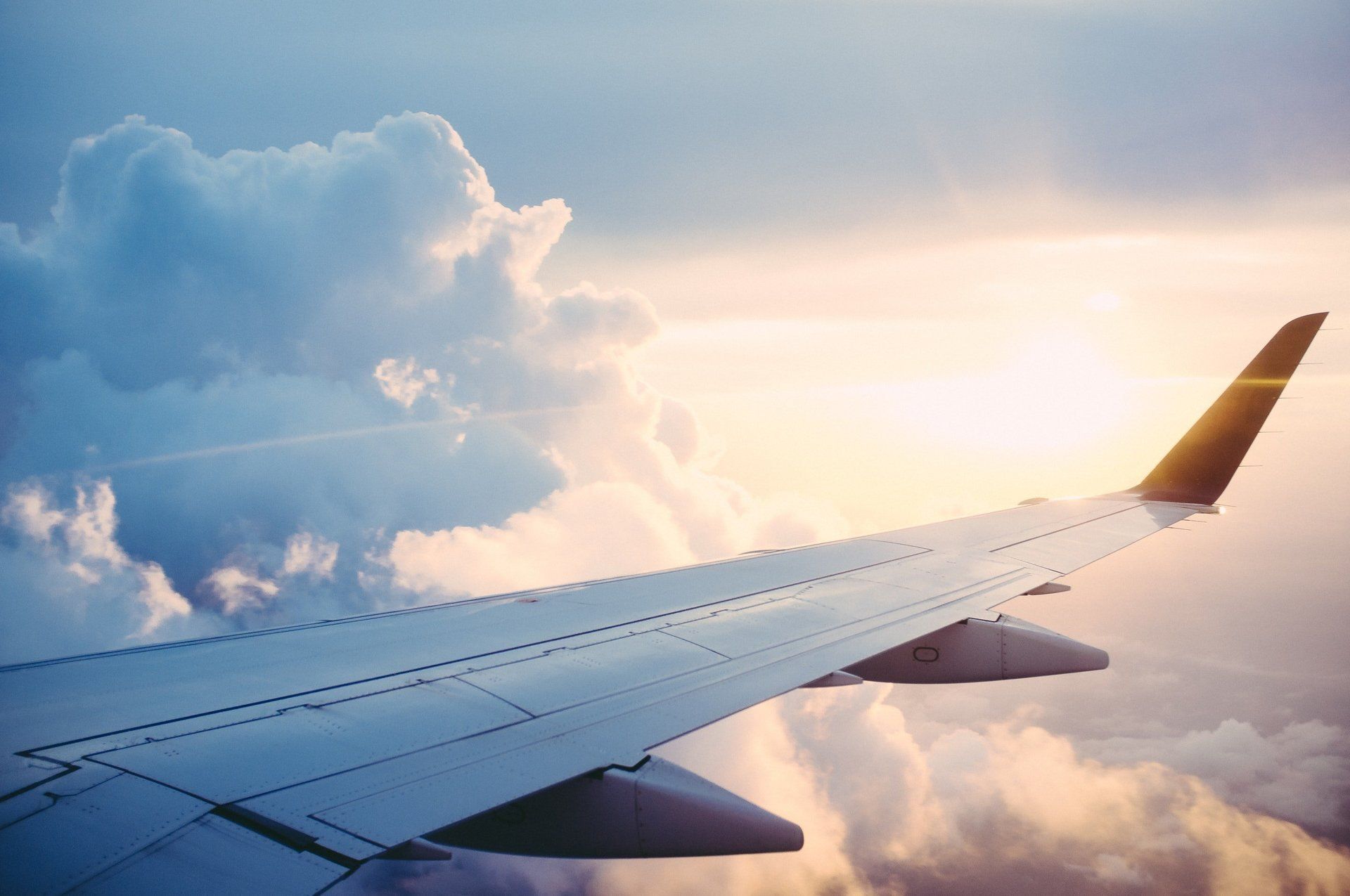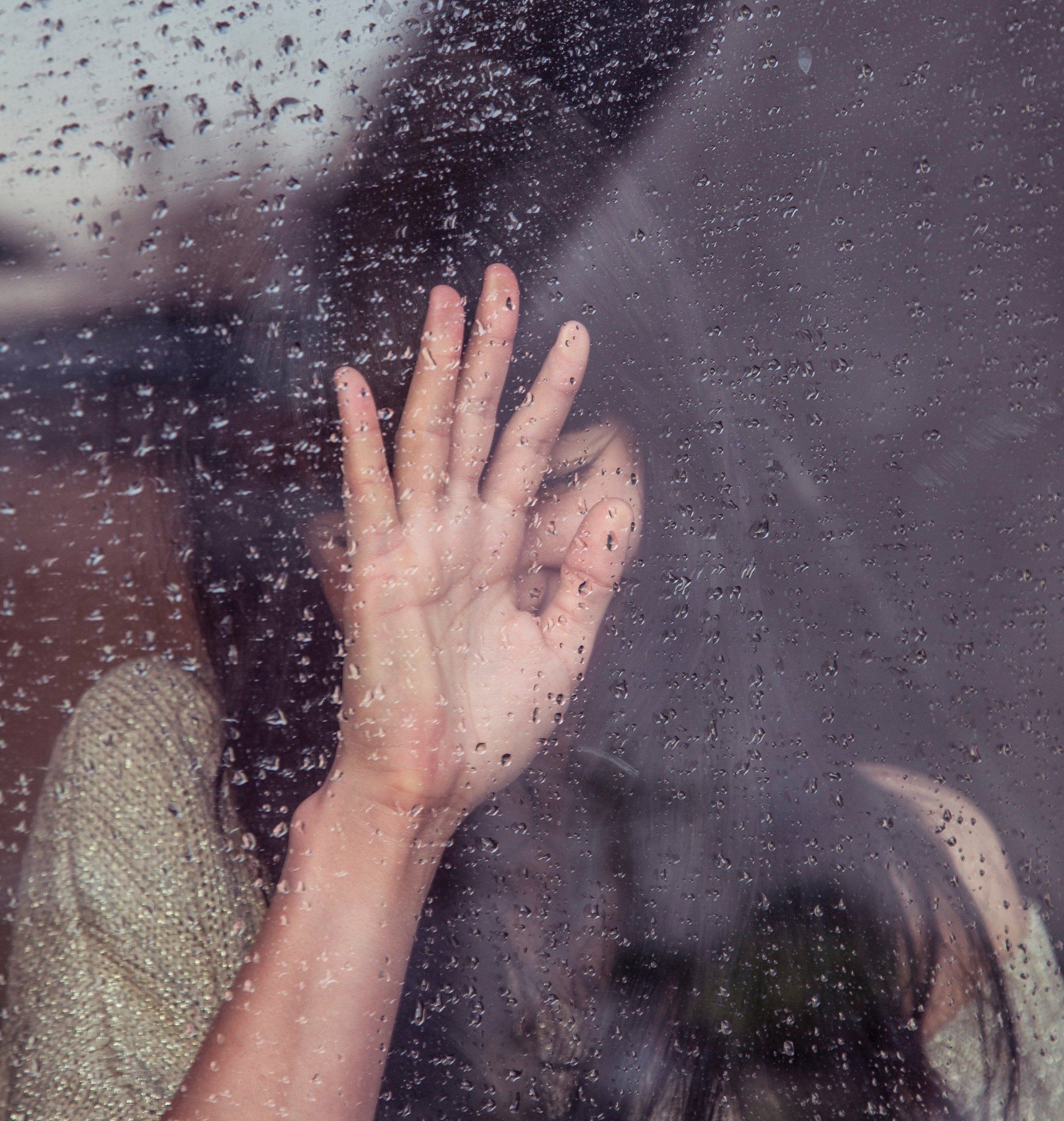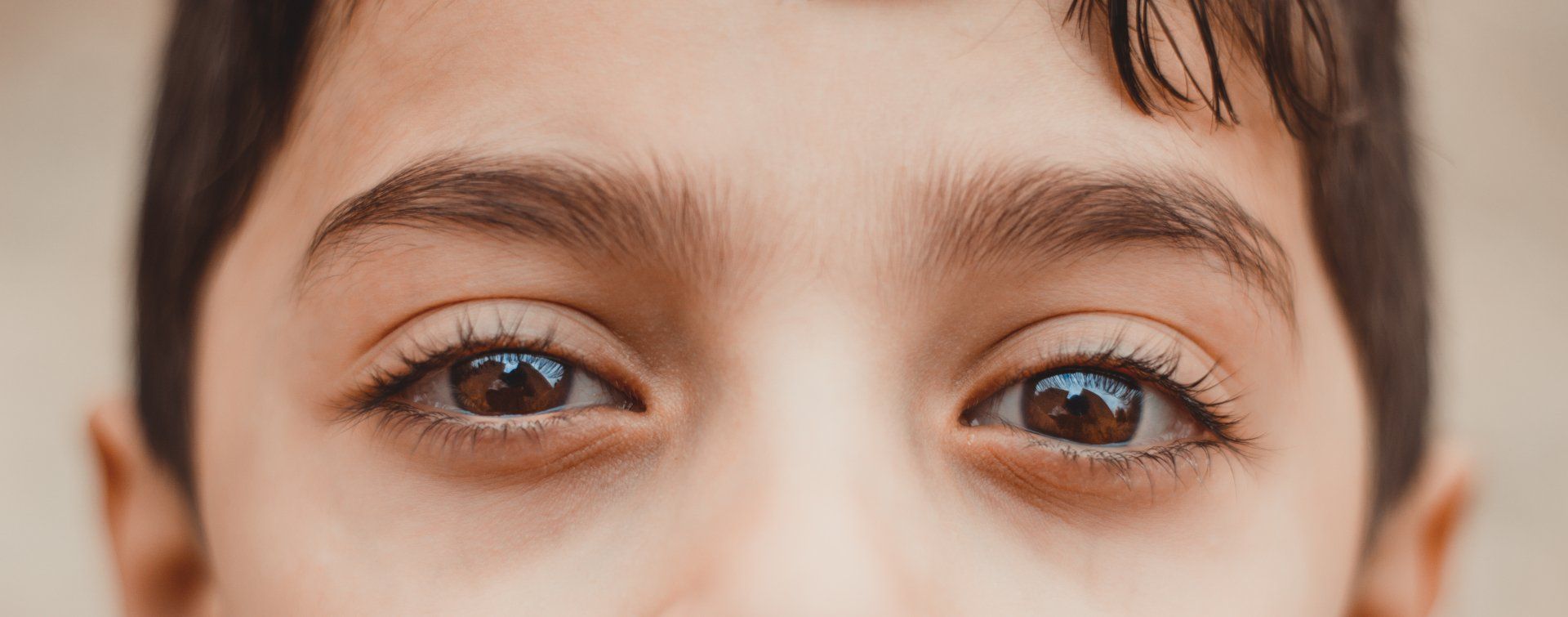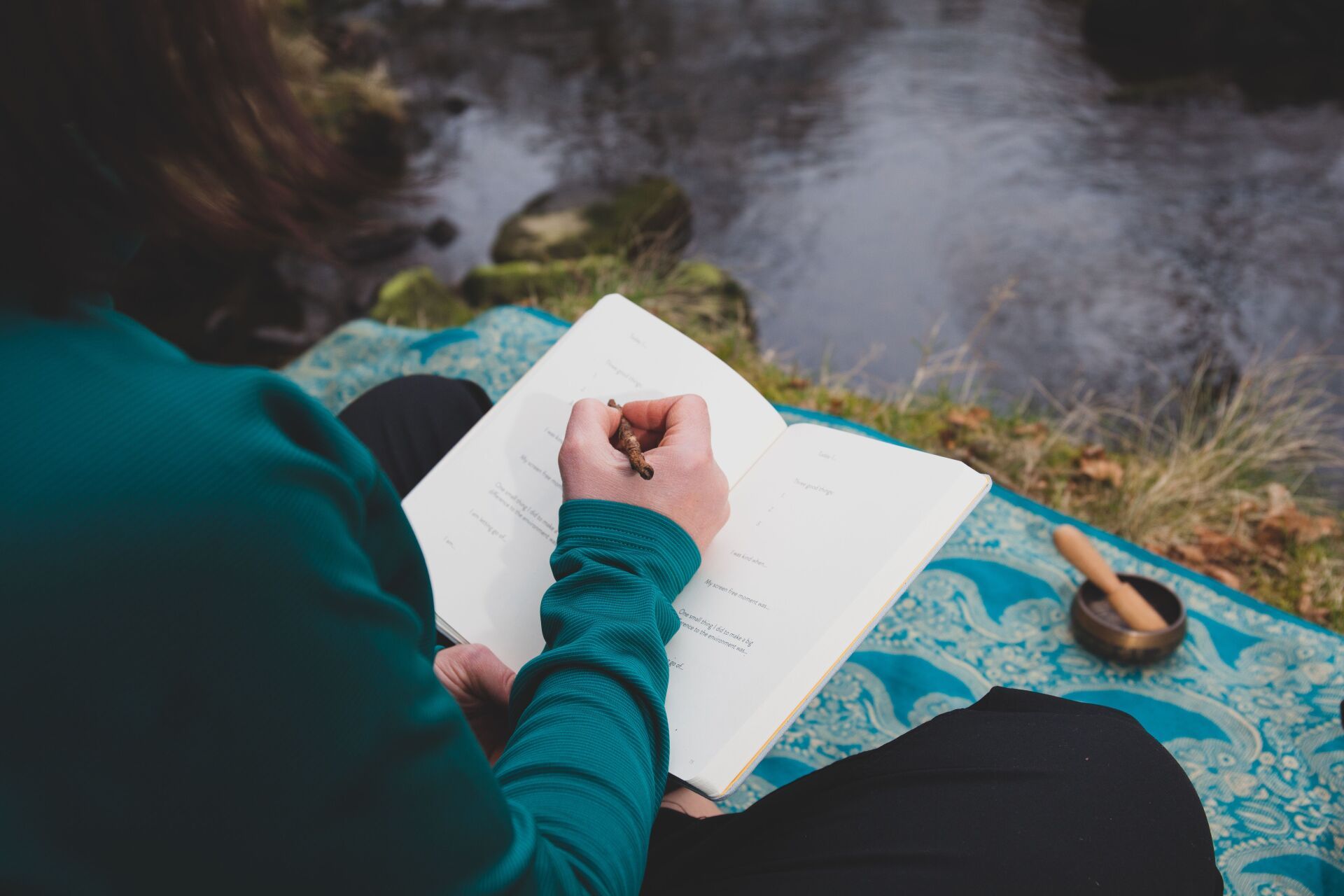“Pain, as much as we never want to feel it and want to do what we can to avoid it, is the way that we adjust to this new reality.”

These words really struck a chord with me. They are the words of Julia Samuel, who has worked with grieving people for over 30 years and was speaking at a ‘Death of a parent’ session at the Good Grief Festival. And as far as I was concerned, she could have been talking directly to me.
My dad upped and died, without any word of warning, less than a month before my first baby was due. My last conversation with my dad was just a little over 24 hours before his sudden departure. I wished him happy birthday and chatted about what dates he was coming to visit his newest grandchild. He was really looking forward to his trip from Ireland to the bright lights of Wigan and secretly delighted that - in his mind - I wouldn’t be festering alone with a cat in my old age. Just like him, I'd have a loyal child to keep me company!
It was the single biggest shock I've ever experienced in my life.
I battled with huge worry and guilt that my unborn child would be impacted by my grief, so I avoided it. I tried my best to stay in some kind of upbeat, positive state. I kept my body and mind busy walking up the infamous Billinge hill on a pretty much daily basis and pottered in the garden.
My only stand out memory from the time was how to keep my huge baby bump hidden from airport staff as I made the heart-breaking trip to be with my family in Ireland.
Looking back it was like a scene out of a sitcom. I put on as many layers as I could stretch over me and carried everything possible to disguise the bump, ready to throw out a 'how dare you insult me, I'm just fat' comment if anyone approached me. Although I think my red, puffy face was enough to scare anyone from coming near me.
Of course, while it was tinged with sadness, the arrival of my beautiful smiling baby boy was as joyful as I’d hoped. But what was to become of this suppressed grief?
Tangible pain to ease me into my new reality.
When baba arrived I began the excruciatingly painful breastfeeding journey. Anyone who says, 'you must not be doing it right if it hurts', I know you mean well but seriously, it really isn't helpful.
A midwife described it as toe curling and I couldn’t agree more. I remember there being lots of holding my breath and gritting of teeth required. I never once considered quitting though. I'm not unique in my breastfeeding experience but I have often reflected back on how and why I persevered when I wasn't particularly anti-formula.
I now know it was because it gave my emotional pain an outlet. The pain of breastfeeding was tangible, something real that I could understand and other people could relate too. With my baby safe and healthy I felt justified in expressing this pain – there were plenty of tears!
The excruciating pain didn’t last forever. Perhaps it lasted just long enough for me to adjust to my new reality, without having to face it head on?
Emotional rerun
There was no doubt in my mind that I would breastfeed my second baby as well, but just five days in I gave up. They were five of the most physically and emotionally distressing days of my life. I wanted to hand him back. I remember thinking I had appendicitis and secretly hoping I did so I could go into hospital and be looked after.
This time the pain of feeding my baby wasn’t simply an excuse to cry. It acted like an instant time machine, catapulting me back to my dad’s death, forcing me to relive the entire experience, as if watching a rerun of a highly emotive film.
I couldn’t stop focussing on everything that had followed my dad’s sudden death, from the call I received from my sister at 9.05am when she would normally be teaching her primary school kids, to the subsequent process of booking flights to Ireland, packing a bag – tasks that are so far removed from where your mind is after receiving such mind-boggling news.
No longer was I laughing at the ridiculousness of hiding my bump. The impatience of waiting on a plane, waiting on the hire car, waiting to get home to my family came rushing back. The anxiety about the house being full of people when I got home again churned my stomach, and worst of all, being totally gutted that I’d posted his birthday card late meaning he never received it.
I even started reliving the harmless comments from well-meaning people who said things like ‘well your baby will have a guardian angel to look over them now’ or ‘someone has to die for another to be born’. The latter of these comments is a corker. Way to go making me feel responsible for his death! And now, two years on, I was feeling this pain as if was yesterday.
Invisible pain
The physical pain I felt when trying to feed my second son Freddie stirred all the emotional pain it had helped me keep at bay when I fed Finn. Emotional pain, which grief ultimately is, may be invisible but is very real. Its lack of visibility can also cause it to be very lonely. So many kind people sent cards and flowers and expressed their sorrow in the immediate aftermath of my dad’s death, but it doesn’t take long before people never mention it again. It soon becomes like it never happened. But it lingers in and around you wherever you go, whatever you’re doing, whoever you’re with, but very often with no outlet.
Candice Pert, a neuropharmacologist, who seems to have been an incredible woman and scientist with regards studying the connection between our emotions and our bodies said that:
“The body is your subconscious mind. Our physical body can be changed by the emotions we experience”.
I’m no scientist or expert in any field but I can completely relate through my own experiences. It also explains why people can have such emotional responses to treatments such as reflexology (see more about reflexology here). As a reflexologist, clients have often fed back about unexpected emotional outbursts following a treatment, generally about things they have subconsciously been trying to repress, such as grief or unhappiness in their current life circumstance.
We all know that our minds carry emotional stress and it’s a fairly familiar concept to most that we hold stress in our necks and shoulders when we’re carrying a heavy burden at home or work, but all parts of our body can hold stress. According to Pert the physical clues we experience could be tell-tale signs of emotional memories.
This might be a bit too ‘sciency’ for some, but I think it’s fascinating.
“A feeling sparked in our mind-or-body will translate as a peptide being released somewhere. Organs, tissues, skin, muscle and endocrine glands all have peptide receptors on them and can access and store emotional information. This means the emotional memory is stored in many places in the body, not just or even primarily in the brain. You can access emotional memory anywhere in the peptides receptor network, in any number of ways. I think unexpressed emotions are literally lodged in the body. The real true emotions that need to be expressed are in the body trying to move up and be expressed and thereby integrated, made whole, and healed.” (Pert, C )
Emotions are energy in motion. Energy cannot be created or destroyed but it can be transformed. An easy example to explain this is water. It can be frozen to become ice, melted to become liquid and evaporated to become water vapor. At no point is it ever destroyed.
Therefore, the emotions that we hold in our bodies do not have to remain painful. They can be transformed. The pain we try so hard to avoid and look away from needs to be lived through for us to transform it from something that is causing us harm. Sometimes we need help with this. I most certainly did following the birth of my second child.
Meditation, almost as good as a holiday…
In an attempt to acknowledge my pain – both physical and emotional - my endlessly patient partner suggested I do some mindfulness.
I used to practice mindfulness daily, ever since my solo cycle tour through India and Nepal in 2012 (read about that here). I hadn’t been able to bring myself to sit purposely with my thoughts since my dad died. I wasn’t ready to look directly at all the sadness, anger and fear that it created. But now, after the birth of my second child, something had to change. I had two young children to look after and very little reprieve from it thanks to Covid-19.
And it didn’t take many days of reconnecting to my mindful meditation practice for me to notice a sense of calm, which was accompanied by hope.
It was a bit of a ‘wow’ moment amidst a feeling of having been trapped in chaos, and such a relief to no longer be feeling so highly strung ( read about meditation benefits here). It really allowed me a break from my minds erratic chatter and turmoil and acknowledge the pain that I am still suffering. By no means is meditation a quick fix or is becoming mindful a destination. It is very much a journey that does not always take the quickest or most direct route.
I am still on my journey and some days I crash into the ditch and feel like the world is collapsing in around me. On those days, I do my best to go for a walk. But I don’t walk ‘mindfully’, I stomp. I stomp as fast as I can until my thoughts begin to untangle themselves and allow some steam to be released, like a kettle when it comes to the boil.
Mindfulness has enabled me to acknowledge the pain I have suffered, both physical and emotional, and, instead of repressing it, adjusting to it.
You can join me on my journey at . . . www.mindfulbynature.com
Mindful By Nature

Nature is not a place to visit, it's our home.
Gary Snyder
JOIN OUR COMMUNITY
Drop your email below and be the first to know about upcoming events and retreats.
Thank you!
Please check your email





